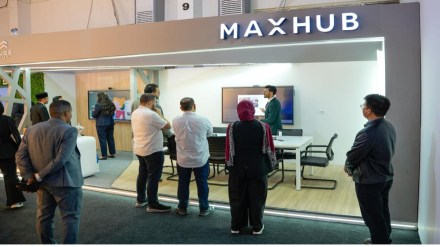Maxhub, a provider of interactive flat panel (IFP) solutions, aims to achieve a balanced revenue distribution of 50% from enterprise and 50% from education by the end of 2025, according to Pankaj Jha, managing director of the company. Currently, education accounts for 70% of the company’s revenue, while enterprise contributes 30%.
Speaking to FE, Jha said: “This particular year, by the end of 2025, I see that becoming 50-50%. Enterprise is one of the fastest-growing segments for Maxhub, not only in India but across the world.”
The company also expects its market share in India to grow significantly, reaching double digits in the next two years, up from its current range of 2.5-3%. This growth is attributed to the company’s expanding partnerships with channel partners across India, including B- and C-class towns.
Also Read:Flipkart Minutes cheapest, but weakest among rivals
“Our conversion rate is nothing less than 100%. This gives us confidence that our market share will grow substantially,” Jha said.
While research and development (R&D) activities are conducted outside India, the company plans to extend manufacturing to corporate solutions as demand grows.
Maxhub has initiated contract manufacturing in Delhi, with a focus on products for the education sector. “Contract manufacturing has already started in Delhi for us, and we also see that moving forward, we are looking forward to ensuring that the volume goes up. Eventually, we aim to manufacture most of the products here itself,” Jha said.
Also Read:Tata Power looks to spend 2.5x more in next five years
Maxhub has launched several products aimed at improving collaboration and educational experiences. Among them are AI-powered cameras with features like speaker and presenter tracking, and a portable lecture capture system designed for town hall meetings.
In the education sector, the company has introduced the MaxApp Class Pro, a software tool that helps teachers create lesson plans within seconds using AI. “With AI being there, we have tools like MaxApp Class Pro wherein teachers can prepare their lesson plans almost in seconds,” Jha said. The software aims to allow teachers to focus more on content delivery rather than preparation.
In the education sector, Maxhub has witnessed increasing adoption of smart classroom solutions, particularly in private schools across metro and non-metro cities. “Post-COVID, we see that a lot of schools are going for smart classrooms where they want to have a hybrid classroom structure,” Jha said.
Also Read:TKIL industries forays into green hydrogen
On the enterprise side, Maxhub has introduced integrated solutions combining cameras, microphones, and interactive boards to cater to collaborative needs. These products are designed to work seamlessly with platforms such as Teams, Google Meet, Webex, and Zoom.
“No competitor currently offers the kind of integrated solutions we do. Our devices allow meeting rooms to be used for both collaboration and video conferencing,” Jha said.
